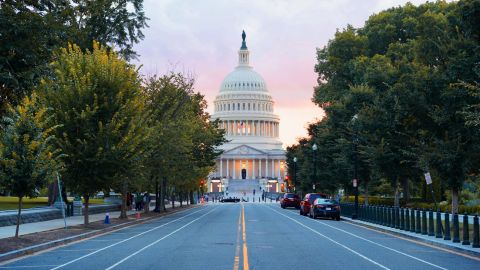ASBMB weighs in on wage rules for postdocs
The American Society for Biochemistry and Molecular Biology sent recommendations to the Department of Labor on Nov. 7 in response to the proposed changes to the Fair Labor Standards Act that would improve working conditions for postdocs.
A major obstacle in retaining STEM talent is financial well-being, with 95% of postdocs reporting that their professional and personal lives are negatively affected by their salary. Up to 30% of postdocs say they are unable to put money aside for their financial security.
The DOL released proposed changes to the FLSA on Sept. 8 to increase the minimum annual salary for exempt employees to $55,068 from $35,568.
Also, within the FLSA, the DOL permits an employer to determine if an employee is employed at an hourly rate or salaried. This distinction can affect an employee’s eligibility for benefits, including health coverage and paid vacation/sick leave.
Ann West is the associate vice president for research development and a professor at the University of Oklahoma. She leads the American Society for Biochemistry and Molecular Biology’s Public Affairs Advisory Committee.
“(Postdocs) deserve to be paid a fair wage with proper benefits, and the ASBMB recognizes and supports the DOL efforts in raising the salary minimum. However, grant holders and institutions need some lead time to plan for and implement such a raise program,” West said
The society made two recommendations to the DOL:
-
Create an implementation plan for the raise in minimum salary for exempt employees.
- Ensure the ruling does not result in reductions in benefits.
Minimum wage for exempt employees
The DOL facilitates and enforces the FLSA by establishing the federal standards for minimum wage that affect workers in the private and government sectors at the local, federal and state level.
Professional employees, such as postdoctoral researchers, are exempt employees who are paid an established monthly or annual salary and are expected to fulfill the responsibilities of their position regardless of the hours worked.
Postdoctoral scholars are in a temporary mentored position following the achievement of a terminal degree, gaining specialized experience prior to pursuing an independent career. Postdocs are essential in carrying out the scientific research that will be published and often used by the primary investigator for the next grant application submission.
“Postdocs are absolutely vital to our national research enterprise and are the next generation of scientists who will pursue careers in academia, industry, science policy and many other fields,” West said.
Postdocs report salary ranges between $39,000 and $55,000, which barely equates to a living wage in most states for one adult with no dependents. The United States National Postdoc survey revealed that in 2016, depending on gender, 63% to 68% were married/partnered and/or 22% to 31% had children.
Amid reports of faculty members struggling to fill postdoc positions, the National Institutes of Health created a working group in November 2022 to re-envision NIH-supported postdoctoral training. In a preliminary report published in August 2023 based on 3,250 written comments, 87% of respondents expressed concerns about salary and 37% were concerned with employment status and benefits.
Retaining benefits
Along with postdocs being underpaid, benefits vary drastically by institution. Benefits can include health insurance, retirement plans, childcare access and funds, which are critical for their financial security. In Nature’s 2023 postdoc survey, 58% were offered parental leave and 17% had subsidized childcare included in their benefits packages. The Nature survey also reported postdocs between 31 and 40 years old were disillusioned with the research workforce, hours and low pay, resulting in a shift in priorities and personal career goals.
The ASBMB urged the DOL to modify the FLSA ruling to ensure that the employers do not reduce benefits for exempt employees to compensate for the increase in salary, as both elements are essential to quality of life.
ASBMB Public Affairs Director Sarina Neote said, “While the proposed changes to the FLSA will not solve all the challenges the next generation of scientists faces, it will certainly push the scientific community to start developing solutions with this new minimum wage requirement. It is vital that the science community continue ensuring that the STEM workforce is attractive and equitable in this country’s bioeconomy.”
Enjoy reading ASBMB Today?
Become a member to receive the print edition four times a year and the digital edition monthly.
Learn moreFeatured jobs
from the ASBMB career center
Get the latest from ASBMB Today
Enter your email address, and we’ll send you a weekly email with recent articles, interviews and more.
Latest in Policy
Policy highlights or most popular articles

Building a stronger future for research funding
Hear from Eric Gascho of the Coalition for Health Funding about federal public health investments, the value of collaboration and how scientists can help shape the future of research funding.

Councilors advocate for science on Capitol Hill
ASBMB Councilors meet with their elected officials to advocate for basic scientific research funding and training the next generation of scientists.

Hope for a cure hangs on research
Amid drastic proposed cuts to biomedical research, rare disease families like Hailey Adkisson’s fight for survival and hope. Without funding, science can’t “catch up” to help the patients who need it most.

Supporting science through advocacy and community building
ASBMB calls on scientists to take action as funding cuts and policy shifts threaten the U.S. research enterprise, emphasizing the power of community advocacy and persistence in protecting the future of science.

Seven steps to advocating in your home state
Find out how to schedule, prepare for and conduct a productive district office meeting to communicate the importance of fundamental scientific research funding to your representatives.

ASBMB members call for funding and agency support amidst uncertainty
In 60 meetings on Capitol Hill, scientists urge legislators to reaffirm support for scientific innovation

